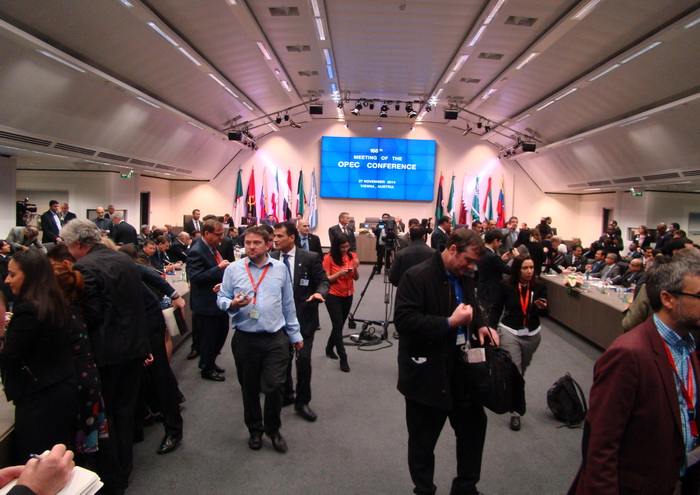1- Falling oil prices by 30 percent between June 2014 and the time when OPEC held its 166th ministerial meeting late November was tough for some oil exporting countries. In such circumstances, OPEC members came together in Vienna to review falling oil prices and try to take initiatives to push it upward. Even though most analysts anticipated OPEC would decide to reduce production ceiling, their anticipation did come true.
2- After 166th meeting of OPEC decided to maintain status quo, many domestic oil experts criticized Petroleum Ministry’s stance in the meeting.
But if we have a little bit fairer look at the issue, we should accept that the power of each country in OPEC depends on its production capacity and its share in the market. Having this in mind, it is evident that Saudi Arabia can exert more influence on the process of decision-making in comparison with other OPEC fellow members.
Saudi Arabia and its allies in OPEC who directed the meeting toward a decision based on maintaining the existing production ceiling are producing half of daily production of 30 million barrels by OPEC. There is no doubt that the four countries defending 30 million barrels ceiling outweighed the other 8 members who called for cutting output.
3- The Islamic Republic of Iran dreams an oil-free economy. In recent years high-ranking officials of the country have spoken frequently about the importance of the matter and to this end, Economy of Resistance principles have been announced in March 2014.
One of the most important quantitative indexes of Economy Resistance is related to reducing dependency on oil revenues and 11th Administration under the leadership of Hassan Rouhani has taken great steps toward achieving the goal. In this regard, Petroleum Ministry, as the first administrative branch of the government, has offered its plans to hit the target.
It seems falling oil prices will be a good opportunity in the drive toward putting behind dependency on oil revenues and taking great steps toward getting rid of an economy dependent on oil revenue, even though, as an economic experts has said, it is a difficult task because of the misconduct of the economy over recent years.
4- Generally, it seems OPEC has made the best possible decision. The organization preferred to compete with powerful rivals in the oil market for instance tight oil producers and Non-OPEC producing countries in its drive for maintaining market share instead of pursuing high oil prices in the short term.
Despite some views, Non-OPEC producers are not weak players in the oil market. For example Russia and the U.S., each assume 14 percent of the market share and if we add Mexico, these three non-OPEC oil producing countries responsible for 30 percent of the world oil production. The three countries believe they can maintain their market share and continue oil production even if prices fall as low as 60 dollars per barrel.
Given this reality, OPEC could be the main loser of the market if it had decided to cut production. Moreover, it is hard to imagine cutting overall production by half or one million barrels per day could have an impact on the market behavior because it is believed that oversupply in the market goes beyond 1.5 million barrels per day.
5- OPEC’s decision to maintain oil production ceiling at 30 million barrels per day will give them a better assessment of the tight oil producers’ reaction to falling oil prices and will enable OPEC to set its plans based on new and accurate realities.
By: Rooya Khaleghi


Your Comment